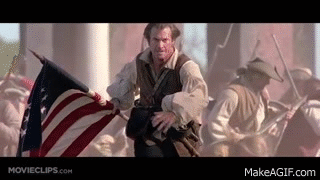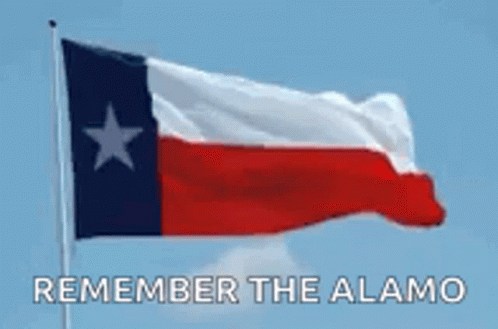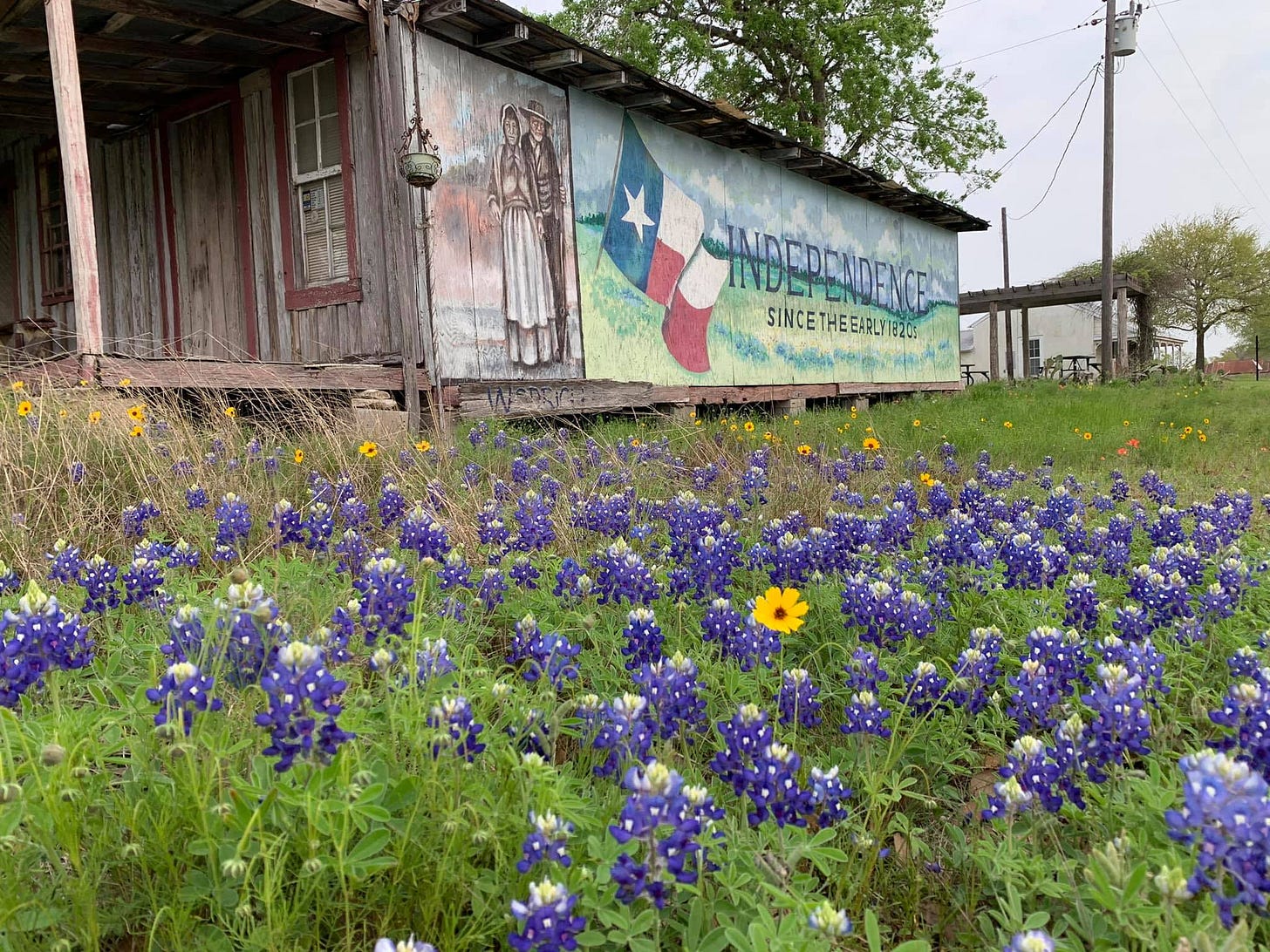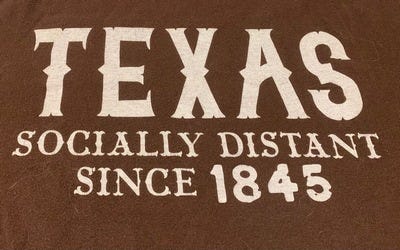The Spirit of Independence
"Go ahead! Liberty and Independence forever." —Davy Crockett (attributed to him as the last entry in his journal)
Americans who chose to come to Texas in the 1820s when it was still under Spanish and then Mexican rule dreamed of starting a new life where they would own land and could prosper through the fruit of their hard work and ingenuity. They sought to be self-reliant and responsible for their own life and happiness as well as their families’.
And Texas promised all that and more. While surveying the land to find the best place to establish the DeWitt colony, James Kerr found the junction of the San Marcos and Guadalupe rivers to be perfect:
the beauty of the country, its rich lands and abundant water supply made the place a very suitable one for [the colony’s] purpose. (Rather, 1905, p. 8)
However, the only Americans west of the Colorado River at the time, and other American colonists to Texas, did not choose the easiest dream to follow. The first cabins of what would become Gonzales were built in 1825. As early as 1826, Gonzales was attacked by Indians, and at least one man was killed and scalped; the other inhabitants fled the town, moving east. It wouldn’t be until 1927 that people started returning to Gonzales (Rather, 1905, p. 8).
The Americans establishing in Texas had to “swear to uphold the federal [Mexican] and state constitutions and to observe the Roman Catholic religion” and were promised “in return [that] the laws guaranteed the security of [their] person[s] and property and permitted [them] to engage in any honest pursuit for the first ten years. [In addition,] the new settlements were to be exempt from all taxes except such as might be levied to repel foreign invasion” (Rather, 1905, p. 5).
Yet, obtaining protection from the Mexican government proved challenging, to say the least. Empresario Green DeWitt asked for Mexican troops to protect the colony, but despite repeated calls for security, the years passed, and no garrison came. In 1829, DeWitt finally convinced the Mexicans to send troops by claiming that contraband was going through the territory. Alas, the troops did not stay long and were quickly called back to Béjar (Rather, 1905, p. 42).
DeWitt continued to ask for troops in 1830 and 1831, and he also asked for a cannon—the “Come and Take It” cannon, but this is for another post. The Mexicans had an unmounted cannon in Béjar that they were willing to lend to the DeWitt colony. Troops were also sent but were again quickly withdrawn after attacks.
Ethel Zivley Rather, who recounted the founding and development of the DeWitt colony, commented:
The difficulty the colonists had in obtaining help from the government was so that they probably never asked for it again. (p. 43)
As an American, the first thing that comes to mind when hearing the word “independence” is the Founding of our country, the United States of America, the Declaration of Independence and the Constitution, and the fight against a government imposing on us duties with no option to refuse—or without representation.

As a Texan, “independence” reminds us of the Texians’ fight against a tyrannical and cruel Santa Anna and the Alamo (not necessarily in that order).

In both cases, independence conveys the image of a sovereign country whose citizens fought against tyranny and to be able to govern themselves.
That last part is crucial, and the Gonzales story illustrates how independence implies other values and certain virtues: freedom, self-governance, self-reliance, and personal responsibility for one’s life and to one’s personal development, rather than submission or acceptance of defeat.
Conditions on the Frontier and in Texas were harsh, and those who decided to live and start a family there had to possess a healthy dose of self-reliance, determination, and resilience. Members of colonies and communities did help each other, but beyond that, they had to rely on themselves and had to be prepared, in some cases, to stand up to attacks alone, like the first colonists in Gonzales who succumbed to an Indian attack while most of their community was away.
Even in the absence of conflicts with Indian tribes, the environment was brutal and nature hostile—they still are, but we have developed ways to cope. Americans and Texans yearned for independence, but they also possessed the virtues (or adapted to develop them) that made this independence possible. Their values and virtues are still part of the American and Texan characters and psyches today.
Independence is a particularly cherished value in Texas, which has been its own Republic. Texans love America, but they also do their own thing. Texas is Texas.
Texans stand for their values, work hard to achieve them, and as a result are extremely proud of what their state has accomplished.
As I resume posting here today, my fellow Americans all know (I hope) that this is Election Day. I did not intend for this post to go out specifically today. This is a long-overdue yet relatively short article to signal that Achievement, TX, is back. It also touches on several values and virtues that made Texas, Texas, and America, America. So I guess it is perfect, if not initially intended, timing. Upcoming posts and stories of achievement will touch on these values and virtues in more detail.
Thank you if you are still reading this! Please stay tuned. More to come soon.
Sources
Rather, E. Z. (1905). De Witt's colony. The University of Texas.
Roell, C. H. (1952). DeWitt's colony. Texas State Historical Association.





It's wonderful to have you back, Carine. I always enjoy your articles.